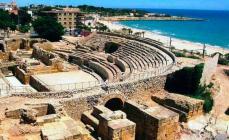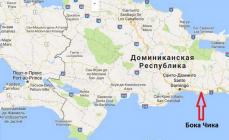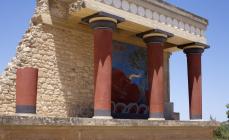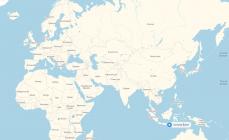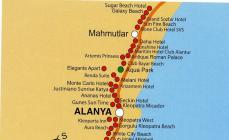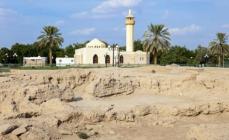Jurisprudence.
State
State- a special form of organization political power in a society that has sovereignty and manages society on the basis of law, with the help of special mechanism(apparatus).
The state has a monopoly on the exercise of power and on the management of society.
Theories of the emergence of state-va:
Theological (divine will).
Patriarchal (transformation big family into the people and the transformation of paternal power over children into the state power of the monarch over his subjects, who are obliged to obey him in everything).
Contractual (people entered into an agreement with the state, transferring to it part of their rights that belonged to them from birth, so that the state would manage society on their behalf and ensure order in it).
· The theory of violence (in a primitive society, strong tribes conquered the weak, creating a special apparatus of suppression in order to manage the conquered territories and ensure the obedience of their population).
Irrigation theory (there was a need to organize large public works for the construction of irrigation facilities. For this, a special apparatus was created - state-in).
Marxist theory (at a certain stage in the development of primitive society, as a result of the improvement of its productive forces, surpluses of products and goods appear in excess of what is necessary for personal consumption. These surpluses accumulate in individuals(first of all, among the leaders and elders), thus private property arises, which did not exist under the tribal system. The emergence of property inequality leads to a split of a previously homogeneous society into classes with conflicting interests (rich and poor, slaves and slave owners). As a result, the economically dominant class needed a special structure to keep slaves in obedience, which is why the state was created as a special. Apparatus, machine, with the help of which the slave owners established their political dominance).
State signs:
· The presence of special state. authorities (government, police, courts, etc.)
State power extends to everyone who is on the territory of the state
Only the state can establish rules of conduct (rules of law)
Only the state can levy taxes and other mandatory fees from the population
State has sovereignty
State functions:
・Internal Functions
o In the economic sphere - long-term planning and forecasting of the country's economic development, the formation of state. budget and control over its spending, the establishment of a tax system.
o In the social sphere - social. Protection of the most vulnerable segments of the population (disabled, unemployed, large families), old-age pensions, allocation of funds for free education, health care, road construction, development of public transport, communications, etc.
o In the political sphere - the protection of law and order, the rights and freedoms of citizens, the prevention of interethnic and religious conflicts, the provision of assistance to internally displaced persons and migrants.
o In the cultural sphere - state. support and financing of art, national culture, concern for the moral health of society.
· External functions
o Mutually beneficial economic, political, scientific, technical, military, cultural cooperation with other states.
o Protection against attack, external aggression, protection of state. borders.
o Ensuring peace on Earth, preventing wars, disarmament, elimination of nuclear, chemical and other weapons mass destruction, the fight against international terrorism.
State form
State form- organization and organization of the state. power and how to exercise it.
Form of government (who owns power):
· Monarchy (supreme power belongs to one person).
o Absolute - the monarch does not share power with anyone. ( Ancient Egypt, Ancient China, etc.).
o Limited constitutional - along with the monarch, there is another supreme body of power (for example, parliament).
§ Parliamentary - the monarch is limited in rights and this is enshrined in the basic law (constitution). (Belgium, Sweden, Japan).
§ Dualistic - the duality of supreme power: the monarch forms the government, but the legislative power belongs to the parliament. (Rare - Morocco, Jordan).
· Republic (supreme power belongs to the bodies elected by the people for a certain period, while the elected representatives are legally responsible for their actions to manage society).
o Presidential - the president, elected by the electoral college (or directly by the people) for a fixed term, is both the head of state and the head of the executive branch. He heads the government, which he himself forms. (USA).
o Parliamentary - the president is elected by parliament and does not have much power. He is only the head of state and does not head the executive branch. At the head of the government is the prime minister. (Germany, Italy).
o Mixed (France, Russia).
State device (territorial division):
· Unitary - a state, the territory of which, for the convenience of management, is divided into administrative-territorial units (regions, districts, departments, voivodeships, etc.) that do not have independence. (Poland, France, Lithuania).
· Federal - a state, which is a voluntary association of several sovereign states. Having united, they create a qualitatively new state, in which they receive the status of objects of the federation (states, republics, lands, etc.). At the same time, new federal authorities are created, to which the members (subjects) of the federation transfer part of their powers, thereby limiting their sovereignty. Two systems of authorities - federal (operate throughout the state-va) and subjects of the federation (operate only on their territory). Laws - federal and subjects of the federation. (USA, Germany, Russia).
Confederation - an alliance of sovereign states concluded by them to achieve any specific goals (joint decision economic problems, defense). (USA from 1776 to 1787)
State (political) regimes:
· Democratic (ensures the equality of all citizens and the actual implementation of all civil and political rights and freedoms, as well as equal access for all citizens and their associations to participate in public and state affairs).
· Anti-democratic
o Totalitarian (the state exercises complete, universal (total) control over all spheres of society).
Judicial system of the Russian Federation
Elections
Election system:
· Majoritarian (One candidate from one electoral district. There should be no more than two candidates in the list of voters. Citizens vote for the best in their opinion.)
· Mixed (in some countries) (Half of the list by majoritarian, half by proportional).
The electoral qualification affects candidates and voters.
Candidates:
· Must have reached a certain age (usually 21).
· For some candidates, a residency requirement is introduced (to live a certain number of years in the country).
Voters must be able-bodied, of legal age, have citizenship, not have restrictions on their rights (sitting in prison, for example).
In a number of countries there is a property qualification (only wealthy citizens are allowed to vote).
There is a minimum threshold for voter turnout (for most countries 50% + 1 person).
All elected deputies receive state. salary and immunity from persecution (cannot be arrested, detained, imprisoned). For committing a grave crime, a deputy is deprived of his status (only parliament can deprive him of his status). The measure is aimed at protecting deputies from the arbitrariness of the authorities.
For all the time of work, a deputy cannot engage in commercial activities, be a member of the state. service.
The work of a deputy is to participate in the activities of parliament, to carry out party functions, to protect the rights of citizens. In addition, a deputy may engage in scientific or journalistic activities.
At the time of work, the deputy is provided with official housing (in some countries and transport).
The deputy has extended powers in relation to state bodies. authorities (the deputy can make a request on the fact of violation of rights revealed by him in any state authority).
The deputy has the right to raise the issue before the prosecutor's office and inquiry in cases of violation of the rights of voters.
Assistants are assigned to carry out the work. In some countries, deputy assistants have the rights of the deputy himself. In the Russian Federation, assistants to a deputy perform only technical functions.
At the end of the term of the deputy mandate, the deputy leaves official property and returns to the region where he was elected. If the deputy held a position in state bodies. power before the election, then he gets it back.
There are a number of government positions. authorities incompatible with the work of a deputy.
A person cannot be elected simultaneously to local and federal government bodies. In case of victory in both local and federal elections, he will be left in only one.
legal relationship
legal relationship- public relations, regulated by the rule of law, are authorized and protected by the state.
All significant relations in society are regulated by the rule of law. Ignorance of the rule of law does not exempt the subject from liability in case of violations.
Rules of law are divided into areas of application.
Relations related to property, as well as some non-property relations, are regulated by the norms of civil law (the Civil Code of the Russian Federation and the Civil Procedure Code of the Russian Federation).
Personal non-property relations include honor, dignity and business reputation. Civil law protects these three categories.
Relations in the sphere of administrative management and public order are regulated by the norms of administrative law.
Regulations of ministries, departments, services, norms of behavior of citizens are regulated by the Administrative Code of the Russian Federation.
Public relations related to the suppression of crimes are regulated by the norms of criminal law. The provisions of criminal law apply only to individuals. persons (i.e. the company cannot be held liable, employees can be held accountable).
Offenses:
In civil law - torts
In administrative law - misdemeanors
In criminal law - crimes
Offense- an objective, guilty, unlawful act committed by a proper subject.
Crimes are the most dangerous.
The offense consists of 4 parts:
Object (Public relation, which is protected by the state. The state does not protect individuals or legal entities personally, it protects the rules of law. The rules of law regulate public relations. Participants in public relations automatically become subjects of legal relations. If the subject of the legal relationship violates the rule of law , he becomes the subject of the offense.By violating the rights of the nomu, the subject violates the rights of persons participating in legal relations.)
Objective side (all circumstances allowing to establish the actions of the offender)
Subjective side (characterized by guilt)
Guilt- the mental attitude of a person to the act committed by him.
o Direct (when the person knew about the consequences of his act and desired their occurrence)
o Indirect (when the person knew about the consequences of his act, but was indifferent to them)
Recklessness
o Frivolity (the person knew about the consequences of the act, did not want them to occur, frivolously expected that the consequences would not occur or they could be prevented)
o Negligence (the person did not know about the consequences of the act, although by virtue of qualification, or, based on the circumstances, he should have known)
The subject (the offense is committed only by a capable or divisible subject)
Civil legal relations
Civil legal relations regulate social relations that are associated with property relations, the interests of individuals. and legal individuals, as well as government agencies. authorities.
Property relations imply the interest of the parties in obtaining mat. benefits, both by obtaining property (movable and immovable), and by performing work and providing services.
Personal relationships:
o Property
o Non-property
Both categories involve checkmate. interest, the subjects of which, participating in civil legal relations, pursue their own private interest, usually associated with enrichment, including state bodies. authorities.
Similar information.
Political relations are hierarchized levels of power of various subjects and the interaction of social subjects in order to achieve the intended political goals.
Politics (from politike - Greek public affairs) is a field of activity related to the coordination of the interests of individual social groups, with the aim of conquest, organization and use of state power and management social processes on behalf of society and in order to maintain the viability of the civil collective.
Politics finds its expression in political ideas, theories, in the activities of the state, political parties, organizations, associations and other political institutions. In their totality, the dominant political ideas, theories, the state, political parties, organizations, methods and methods of their activity form the political system of society. The concept of "political system" allows you to most fully and consistently reveal the socio-political nature of society, the political relations existing in it, the norms and principles of the organization of power.
The structure of the political system includes:
1. An institutional subsystem consisting of various socio-political institutions and organizations, the most important of which is the state.
2. Normative (regulatory), acting in the form of political and legal norms and other means of regulating the relationship between the subjects of the political system.
3. Political and ideological, including the totality political ideas, theories and views on the basis of which various socio-political institutions are formed and function as elements of the political system of society.
4. A functional subsystem containing the main forms and directions in the activity of the political system, ways and means of its influence on public life, which finds expression in political relations and the political regime.
The main institution of the political system is the state. There are a number of theories explaining the nature and ways of the emergence of the state.
From the point of view of the theory of “natural origin”, the state is the result of the mutual influence of natural and social factors, it expresses the principles of the natural distribution of power (in the forms of domination and subordination) in nature (the doctrine of the state of Plato and Aristotle).
"The theory of the social contract" considers the state the result of the agreement of all members of society. Coercive power, the only manager of which is the state, is carried out in the general interest, since it maintains order and legality (T. Hobbes, D. Locke, J.-J. Rousseau).
From the point of view of Marxism, the state appeared as a result of the social division of the pile, the emergence of private property, classes and exploitation. Because of this, it is an instrument of oppression in the hands of the ruling class (K. Marx, F. Engels, V. I. Lenin).
"The theory of conquest (conquest)" considers the state the result of the subjugation of some peoples by others and the need to organize the management of the conquered territories (L. Gumplovich, Guizot, Thierry).
"Patriarchal": The state is a form of extended patriarchal (from Latin father) power, traditional for primitive forms social organization acting as a spokesman for common interests and serving the common good. (R. Filmer).
In the framework of the modern approach to the problem, the state is understood as the main institution of the political system, which organizes, directs and controls the joint activities and relations of people, social groups and associations.
As the main political institution, the state differs from other institutions of society in its features and functions.
Common to the state are the following features:
The territory delineated by the boundaries of the state;
- sovereignty, i.e. supreme power within the boundaries of a certain territory, which is embodied in its right to legislate;
- the presence of specialized management institutions, the apparatus of the state;
- law and order - the state acts within the framework of the rules of law established by it and is limited by it;
- Citizenship - a legal union of persons residing in state-controlled territory;
- monopoly - the illegal use of force on behalf of society and in its interests;
- the right to levy taxes and fees from the population.
With a modern interpretation of the essence of the state, its main functions can be distinguished:
Protection of the existing social order,
- maintenance of stability and order in society,
- prevention of socially dangerous conflicts,
- regulation of the economy, conducting domestic and foreign policy,
- protecting the interests of the state in the international arena,
- implementation of ideological activity, defense of the country.
The most important functions of modern state regulation of the national economy of the Republic of Belarus can be:
Implementation of the functions of the owner of state property, operating on the market on an equal footing with subjects of other forms of ownership;
- formation of a mechanism for economic regulation, support and stimulation of the work of innovative business entities;
- development and implementation of a market structural policy using effective monetary, tax and price instruments;
- ensuring economic and social protection of the population.
To carry out these functions, the state forms a complex of special bodies and institutions that make up the structure of the state, which includes the following institutions of state power:
1. Representative bodies of state power. They are divided into the highest representative bodies with legislative power (parliament), and local authorities and self-government, formed in accordance with the administrative-territorial division of the country.
2. Organs government controlled. There are higher (government), central (ministries, departments) and local executive bodies.
3. Bodies of the judiciary and the prosecutor's office exercise justice in resolving conflicts, restoring violated rights, and punishing violators of the law.
4. Army, public order and state security agencies.
To understand the essence of the state as a ruling institution, it is important to find out such aspects of it as forms of state power, forms of government and political regime. The form of government is understood as the organization of the supreme power and the order of its formation. On this basis, two main forms are traditionally distinguished: the monarchy and the republic.
Monarchy is a form of government in which power is concentrated in the hands of a single head of state. The following features are inherent in the monarchy: lifelong rule, hereditary order of succession of supreme power, absence of the principle of legal responsibility of the monarch.
A republic is a form of government in which the highest bodies of state power are either elected by the people or formed by nationwide representative institutions. The following elements are inherent in republican government: the collegial nature of the supreme authorities, the elective nature of the main positions, the term of which is limited in time, the delegative nature of the powers of the government, which are handed over to it and taken back in the process of popular will, the legal responsibility of the head of state.
The forms of the national-territorial structure characterize the internal organization of the state, the existing formula for the correlation of the powers of central and regional authorities:
A unitary state is a state that is subdivided into administrative-territorial units that have the same status.
- The federation is a union of state formations, independent within the limits of powers distributed between them and the federal center.
- Confederation - a union of sovereign states, which is created for the implementation of specific common goals.
The political regime is understood as a set of institutional, cultural and sociological elements that contribute to the formation of the political power of a given country in a certain period of time. The classification of political regimes is carried out according to the following criteria Keywords: the nature of political leadership, the mechanism of power formation, the role of political parties, the relationship between legislative and executive power, the role and importance of non-governmental organizations and structures, the role of ideology in the life of society, the state of the means mass media, the role and importance of the organs of suppression, the type of political behavior.
The typology of X. Linz includes three types of political regimes: totalitarian, authoritarian, democratic:
Totalitarianism is a political regime that exercises control over all spheres of society.
Its features are:
Rigid pyramid of central power;
- centralized economy;
- the desire to achieve uniformity in all phenomena of life;
- domination of one party, one ideology;
- monopoly on the media, etc.
All this leads to the restriction of the rights and freedoms of the individual, to the planting of a true subject, with elements of slavery, the psychology of the masses.
Authoritarianism is a political regime established by a form of power that is concentrated in the hands of a single ruler or ruling group and reduces the role of other, primarily representative institutions. characteristic features authoritarian regimes are: the concentration of power in the hands of one person or the ruling group, the unlimited nature of power that goes far beyond the limits defined for them by law, the lack of control of power by citizens, the prevention of political opposition and competition by the authorities, the restriction of political rights and freedoms of citizens, the use of repression to struggle with opponents of the regime.
A democratic regime is a political regime in which the people are the source of power. Democracy is characterized by the following features: the presence of mechanisms that ensure the practical implementation of the principle of popular sovereignty, the absence of restrictions on the participation of all categories of citizens in the political process, the periodic election of the main authorities, public control over the adoption of major political decisions, absolute priority legal methods implementation and change of power, ideological pluralism and competition of opinions.
The consequence of the establishment of a democratic political regime should be a civil society. This is a society with developed economic, cultural, legal and political relations between its members, independent of the state, but interacting and cooperating with it. The economic basis of civil society is the division of economic and political relations, the existence of an economically free person, private and collective types of property. The political and legal basis is political pluralism. The spiritual basis is the highest moral values that exist in a given society at a given stage of development. The main element of civil society is a person perceived as a person striving for self-affirmation and self-realization, which is possible only if the individual's rights to individual freedom in the political and economic spheres are ensured.
The idea of civil society arose in the middle of the 17th century. For the first time the term "civil society" was used by G. Leibniz. A significant contribution to the development of the problems of civil society was made by T. Hobbes, J. Locke, S. Montesquieu, who relied on the ideas of natural law and the social contract. The condition for the emergence of civil society is the emergence of economic independence for all citizens of society on the basis of private property.
Structure of civil society:
Socio-political organizations and movements (environmental, anti-war, human rights, etc.);
- unions of entrepreneurs, consumer associations, charitable foundations; - scientific and cultural organizations, sports societies;
- municipal communes, voter associations, political clubs;
- independent mass media;
- church;
- family.
Functions of civil society:
Satisfaction of material, spiritual needs of a person;
- protection of private spheres of people's lives;
- containment of political power from absolute domination;
- stabilization of social relations and processes.
The concept of the rule of law has deep historical and theoretical roots. It was developed by D. Locke, S. Montesquieu, T. Jefferson, and justifies the legal equality of all citizens, the priority of human rights over the laws of the state, non-interference of the state in the affairs of civil society.
The rule of law is a state in which the rule of law is ensured, the sovereignty of the people as a source of power, and the subordination of the state to society are affirmed. It clearly defines the mutual obligations of the rulers and the ruled, the prerogatives of political power and individual rights. Such self-restraint of the state is possible only with the separation of powers into legislative, executive and judicial, which excludes the possibility of its monopolization in the hands of one person or body.
The rule of law implies:
1. Rule of law.
2. Universality of law, bound by the law of the state itself and its bodies.
3. Mutual responsibility of the state and the individual.
4. State protection of legally acquired property and savings of citizens.
5. Separation of powers.
6. The inviolability of the freedom of the individual, his rights, honor and dignity.
A constitutional state is a state limited in its actions by law. Law is a system of generally binding norms (rules of conduct) established and protected by the state, designed to regulate and streamline social relations. A close connection with the state distinguishes law from other normative systems, in particular from morality and ethics.
V modern society there are various branches of law that regulate activities and relations in all major areas public life. It establishes ownership relationships. Acts as a regulator of measures and forms of distribution of labor and its products between members of society (civil and labor law), regulates the organization and activities of the state mechanism (constitutional and administrative law), determines measures to combat encroachment on existing social relations and the procedure for resolving conflicts in society (criminal law), affects the forms of interpersonal relations (family law). It has a special role and specificity international law. It is created by agreements between states and regulates relations between them.
Acting as an important and necessary instrument of public administration, as a form of implementation of public policy, law is at the same time the most important indicator position of the individual in society and the state. The rights, freedoms and duties of a person and a citizen, constituting legal status personality is the most important component law characterizing the development and democracy of the entire legal system.
the name of the unicameral parliament in Hungary and Estonia, as well as the legislative body in a number of republics within the Russian Federation: Altai, Bashkortostan, Mari El, Mordovia.
STATE COUP
violent and committed in violation of the constitution, the overthrow or change of the constitutional (state) system or the seizure (appropriation) of state power by anyone.
STATE COUNCIL - 1) the highest advisory body under the Russian emperor in 1810-1906. In 1906, in connection with the creation of the State Duma, it was transformed: half of the members of the T.d. was appointed by the emperor, and half were elected from special class and professional curiae. Liquidated as a result of the February Revolution of 1917; 2) in France, Spain, Belgium, etc. - one of the central state institutions, which is either the highest body of administrative justice, or the body constitutional control; 3) the official name of the government in Sweden, Norway, Finland, China and a number of other states.
STATE - the central institution of the political system, a special form of organization of political power in society, which has sovereignty, a monopoly on the use of legalized violence and manages society with the help of a special mechanism (apparatus).
The term "G." used in a narrow and broad sense: 1) in a narrow sense - as an institution of domination, as a bearer of state power; G. exists in the form of what opposes "society"; 2) in a broad sense - as a state-formed universality, a union of citizens, as a community; here it denotes a whole encompassing "G." (in the narrow sense) and "society".
Ancient thought did not know the essential separation of public and state life, seeing in the latter only a way to solve the "common affairs" of all citizens. The Middle Ages was limited to a statement of the divine essence of G. The distinction between the actual state-political sphere begins with the New Age. From the XVI-XVII centuries. the term "G." began to mean everything public entities, which were previously called "princely domination", "urban community", "republic", etc. The merit of introducing the concept of G. belongs to N. Machiavelli, who used the term "stato" to designate G. (< лат. status положение, статус), которым он объединил такие понятия, как «республика» и «единовластное правление». Сначала термин «Г.» укореняется в Испании (estado) и во Франции (etat), позднее - в Германии (Staat). С этого времени понятия «Г.» и «гражданское общество» стали различаться. К XVIII в. с завершением становления европейского понятия нации-государства оно решительно и повсеместно вытесняет широкое понятие республики как политического сообщества вообще.
Depending on the characteristics of the relationship between power and the individual, the embodiment in the state structure of rationality, the principles of freedom and human rights in political science, the following types of constitutionalism are distinguished: traditional (formed mainly spontaneously and having unlimited power over subjects) and constitutional (limiting power by law and based on principle of separation of powers).
The most important constitutive features of a city are territory, population (people), and sovereign power.
Territory as a sign of G. is inseparable, inviolable, exclusive, inalienable. The population as an element of a city is a human community living on the territory of a given city and subject to its authority. State power is sovereign, i.e. has supremacy within the country and independence in relations with other states. Being sovereign, state power, firstly, is universal, extending to the entire population and all public organizations; secondly, it has the prerogative to cancel any manifestations of all other public authorities; thirdly, it has exceptional means of influence that no one else has at its disposal (army, police, prisons, etc.).
The government performs a number of functions that distinguish it from other political institutions. Functions reflect the main directions in the activities of G. to fulfill his mission. TO internal functions G. include economic, social, organizational, legal, political, educational, cultural and educational, and other functions. Among the external functions, one should single out the function of mutually beneficial cooperation in the economic, political, cultural, and other spheres with other states and the function of the country's defense.
STATE ASSOCIATED
A concept used to denote a special form of interstate, and in fact often intrastate relations. As a rule, under G.a. refers to a state that has voluntarily transferred to another state part of its sovereignty (most often the powers to ensure defense and the implementation of foreign policy relations, the powers to organize money circulation). Thus, Puerto Rico is considered to be an associated state with the United States. The Constitution of the Russian Federation (1993) does not provide for the possibility of being a member of Russian Federation G.a.
BUFFER STATE - a state located between the territories of two or more larger powers. G.b. is located on the path of a probable military invasion, important transport communications pass through its territory. Such a state allows you to control a geopolitically advantageous region. In the history of only the XX century. many states acted as buffers. For example, during the Franco-German rivalry, which became one of the causes of two world wars, as G.b. were Belgium, the Netherlands, Luxembourg. When the interests of Russia and England clashed in Asia (at the beginning of the 20th century), the role of buffers was played by the Ottoman Empire (Turkey), Iran, Afghanistan, and the Tibetan state.
THE WELFARE STATE is a concept that sees modern capitalist society as capable, with the development of science, technology and economics, of providing a relatively high standard of living for all its members. The idea of the state is postulated as a neutral, “above-class” force capable of satisfying the interests of all social strata.
STATE LEGAL - a legal form of organization and activity of public political power and its relationship with individuals as subjects of law.
The idea of G.p. has a long history and occupies an important place in the political teachings of the past. However, the emergence of a holistic concept of G.p. refers to the end of the XVIII - early XIX century, the period of the formation of bourgeois society, when historically progressive political theories carried out a comprehensive criticism of feudal arbitrariness and lawlessness, absolutist and police regimes, affirmed the ideas of humanism, the principles of freedom and equality of all people, non-,) alienation of human rights, resolutely rejected the usurpation of public political power and its irresponsibility to people and society. Naturally, for all the novelty of the ideas and concepts of T.P., developed by G. Grotius, B. Spinoza, J. Locke, S. L. Montesquieu, T. Jefferson and others, they relied on the experience of the past, on the achievements of predecessors, on historically established and tested universal human values and humanistic traditions.

